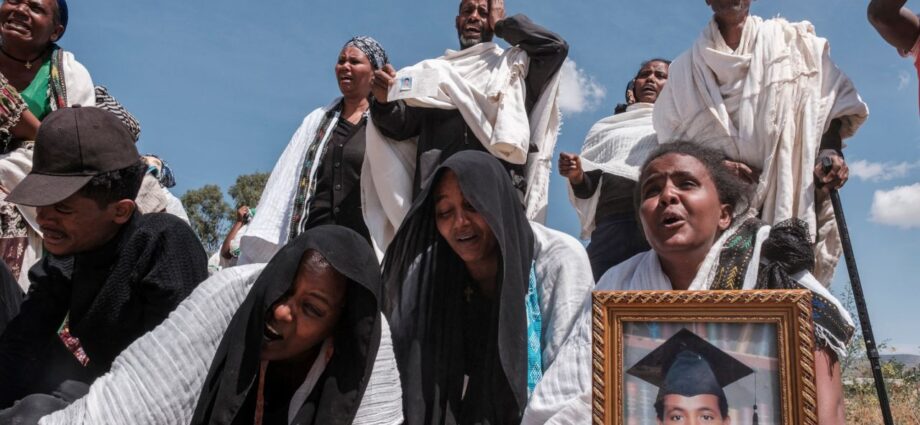When Ethiopian Prime Minister Abiy Ahmed received the Nobel Peace Prize in 2019, he was lauded as a regional peacemaker. A year later, he launched a conflict that spiraled into a brutal civil war, spawning one of the worst humanitarian crises in the world.
In November 2020, Abiy ordered a military offensive in Ethiopia’s northern Tigray region and promised that the clash would be resolved quickly. Two years on, the fighting has left thousands dead, displaced more than 2 million people and given rise to a wave of atrocities, including massacres, sexual violence and the use of starvation as a weapon of war.
Ethiopia was struggling with significant economic, ethnic and political challenges long before a feud between Abiy and the region’s former ruling party, the Tigray People’s Liberation Front (TPLF), bubbled over into unrest and threatened to pull Africa’s second-most populous country apart.
Now, after years of grinding conflict, the Ethiopian government and the leadership of the TPLF have agreed to cease hostilities and pull the country back from the brink. But the surprise truce leaves many questions unanswered, with few details on how it will be implemented and monitored.
Here’s a closer look at what’s happening in Ethiopia.
How did the conflict start?
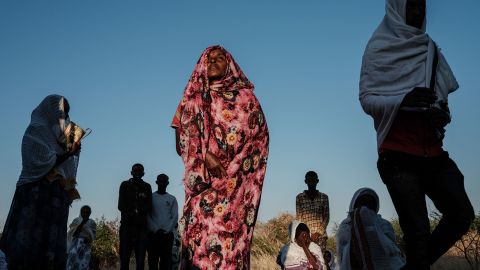
The Tigray conflict has its roots in tensions that go back generations in Ethiopia.
The country is made up of 10 regions – and two cities – that have a substantial amount of autonomy, including regional police and militia. Because of a previous conflict with neighboring Eritrea, there are also a large number of federal troops in Tigray. Regional governments are largely divided along entrenched ethnic lines.
Before Abiy Ahmed came to power, the TPLF had governed Ethiopia with an iron grip for decades, overseeing a period of stability and economic growth at the cost of basic civil and political rights. The party’s authoritarian rule provoked a popular uprising that ultimately forced Abiy’s predecessor, Hailemariam Desalegn, to resign.
In 2018, Abiy was appointed by the ruling class to quell tensions and bring change, without upending the old political order. But almost as soon as he became prime minister, Abiy announced the rearrangement of the ruling coalition that the TPLF had founded – the Ethiopian People’s Revolutionary Front, or EPRDF, which was composed of four parties – into a single, new Prosperity Party, ostracizing the TPLF in the process.
In his drive for a new pan-Ethiopian political party, Abiy sparked fears in some regions that the country’s federal system – which guarantees significant autonomy to ethnically-defined states such as Tigray – was under threat. Leaders in Tigray withdrew to their mountainous heartland in the north, where they continued to control their own regional government.
Tensions boiled over in September 2020, when the Tigrayans defied Abiy by going ahead with regional parliamentary elections that he had delayed due to the coronavirus pandemic. Abiy called the vote illegal and lawmakers cut funding to the TPLF leadership, setting off a tit-for-tat series of escalations between the regional and the federal government.
On November 4, 2020, after accusing the TPLF of attacking a federal army base outside Tigray’s regional capital Mekelle and attempting to steal its weapons, Abiy ordered a military assault against the group, sending in national troops and fighters from the neighboring region of Amhara, along with soldiers from Eritrea.
Abiy declared the offensive a success after just three weeks, but the conflict dragged on for two years, with both sides trading control over the regional capital Mekelle, gaining and losing ground.
An earlier humanitarian ceasefire broke down in August and fighting has intensified in the months since. The clashes, combined with a lack of fuel and the communications blackout, has severely curtailed aid distribution to the region.
On October 17, amid reports of heavy bombing in Shire and other Tigrayan cities, and food supplies running out in the regional capital Mekelle triggering fears of famine, UN Secretary-General António Guterres stated that the situation in the Tigray region was “spiraling out of control,” and that the violence had “reached alarming levels.”
The UN chief called for an “immediate withdrawal and disengagement of Eritrean armed forces from Ethiopia,” and the urgent resumption of talks, which had been due to take place in September.
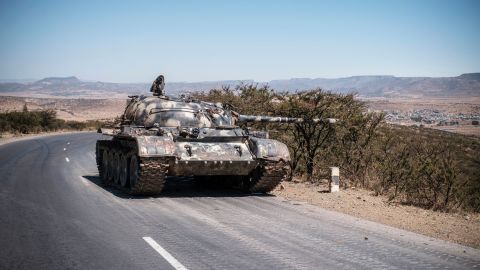
What does the peace agreement actually mean?
After just over a week of formal peace talks mediated by the African Union (AU) in South Africa’s administrative capital Pretoria, delegates from both sides of Ethiopia’s war agreed to a “permanent cessation of hostilities.” The surprise truce was signed by Getachew Reda from the TPLF and Redwan Hussein, national security adviser to Ethiopia’s federal government, on the eve of the second anniversary of the start of the war, on November 3.
The document laid out a number of key objectives, including the disarmament of fighters, unhindered humanitarian access to Tigray, repairing essential services in the region, providing a framework for accountability and justice, and restoring some semblance of stability in the country.
“We have agreed to permanently silence the guns and end the two years of conflict in northern Ethiopia,” both sides said in a joint statement, published after delegates shook hands.
Those involved in mediating the deal signaled that it was just the first in a long series of steps toward negotiating a more enduring peace. Mediators have also warned that forces fighting on the ground could easily disrupt the pact. Still, the UN has called it a “critical first step” towards ending the conflict.
“This is not the end of the peace process but the beginning of it,” said Olusegun Obasanjo, the AU’s high representative for the Horn of Africa and a former Nigerian president, who first announced the deal.
Abiy, whose military, backed by Eritrean forces, has made rapid gains in Tigray over recent weeks, celebrated the conclusion of the talks, saying: “Our commitment to peace remains steadfast. And our commitment to collaborating for the implementation of the agreement is equally strong.”
But how the deal will be implemented is unclear, with analysts pointing out that the text raises more questions than it answers.
“These kinds of agreements should include constructive ambiguity, on the issues that are contested,” Kjetil Tronvoll, an expert on Ethiopian politics at Bjorknes University College in Norway, told CNN. “But here it’s not constructive it’s more destructive, in that it will undermine the trust process and could possibly jeopardize the durability of the agreement.”
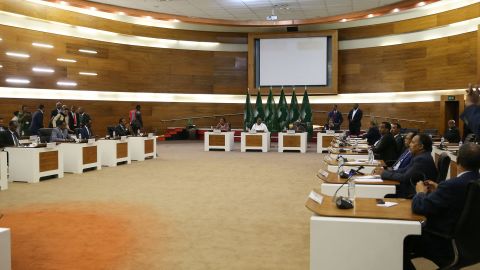
There are a number of points in the agreement that Tronvoll said raise concerns, particularly one issue that was omitted entirely: the status of Eritrean forces in Tigray, which the text makes no mention of in spite of their outsized role in the conflict. Though the agreement states that the Ethiopian military will be deployed along the country’s borders, it does not specify whether they will ensure Eritrea’s withdrawal. “I don’t see any sustainable peace process if Eritrean forces are still on the ground,” Tronvoll said.
The deal is widely being seen as a capitulation by the TPLF, which, by Getachew’s own account, have suffered huge losses since hostilities resumed. “In order to address the pains of our people, we have made concessions because we have to build trust,” he said, adding that civilians and fighters were dying as he spoke.
The swift 30-day timeline for the overall disarmament and demobilization of Tigrayan fighters has raised eyebrows. And the agreement does not outline what force will replace them to provide security guarantees for Tigray’s civilian population, who have suffered widespread abuses at the hands of Ethiopian forces.
The agreement also states that the Ethiopian government will ensure “accountability, ascertaining the truth, redress for victims,” but ultimately how that accountability might come about is opaque.
“It’s one of the key issues left unanswered … how accountability will come about,” Tronvoll said. “Ultimately it is the generals and Abiy Ahmed himself who should be held to account. I don’t know if anyone believes he’ll sign off on an agreement in which he would be put on trial.”
What atrocities have been committed in the conflict?
For months at the start of the conflict, Abiy denied that civilians were being harmed or that soldiers from Eritrea had joined the fight. But reports from international observers, human rights groups and CNN proved both of those claims wrong.
Thousands of people have died in the fighting, by many estimates, with reports of razed refugee camps, looting, sexual violence, massacres and extrajudicial killings. Many more have fled to Sudan, in what the United Nations has called the worst exodus of refugees from Ethiopia seen in two decades. They describe a disastrous conflict that’s given rise to ethnic violence.
Ethiopia’s government has severely restricted access to journalists, and a state-enforced communications blackout concealed events in the region, making it challenging to gauge the extent of the crisis or verify survivors’ accounts.
But evidence of atrocities began to leak out last year.
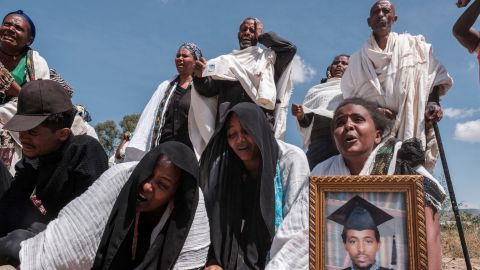
CNN investigations have uncovered evidence of massacres carried out in two Tigrayan towns, by Eritrean forces in Dengelat, and by Ethiopian soldiers in Mahibere Dego. A CNN team on the ground in central Tigray last April captured Eritrean troops – some disguising themselves in old Ethiopian military uniforms – operating with total impunity, manning checkpoints and blocking vital humanitarian aid to starving populations more than a month after Abiy pledged to the international community that they would leave.
All actors in the conflict have been accused of carrying out atrocities, but Eritrean forces have been linked to some of the most gruesome. In addition to perpetrating mass killings and rape, Eritrean soldiers have also been found blocking and looting food relief in multiple parts of Tigray.
Eritrea’s government has denied any involvement in atrocities. Ethiopia’s government has pledged investigations into any wrongdoing.
The conflict, which erupted during the autumn harvest season following the worst invasion of desert locusts in Ethiopia in decades, plunged Tigray even further into severe food insecurity. The UN has repeatedly issued warnings about de facto humanitarian aid blockades, barring critical food and assistance to Tigray.
The Ethiopian government has repeatedly rejected allegations that it is blocking aid. But days after the UN’s aid chief warned Tigray was facing a “man-made” famine, Ethiopia ordered seven senior UN officials to be expelled from the country, including from organizations coordinating relief efforts.
There are currently about 5.2 million people in need of humanitarian assistance in Tigray, including 3.8 million in desperate need of healthcare, according to the World Health Organization.
On the same day that the truce was announced, WHO chief Tedros Adhanom Ghebreyesus said it had been two months since the last humanitarian aid reached the region, and that large numbers of displaced people were arriving in or moving toward Mekelle seeking assistance every day.
“Since the beginning of the siege, food, medicine and other basic services have been weaponised,” Tedros said. “It has now been more than two months since the last humanitarian aid reached Tigray. But even before that, the aid reaching Tigray was a trickle – nowhere near enough to meet the needs.”
How did Abiy win the Nobel Peace Prize?
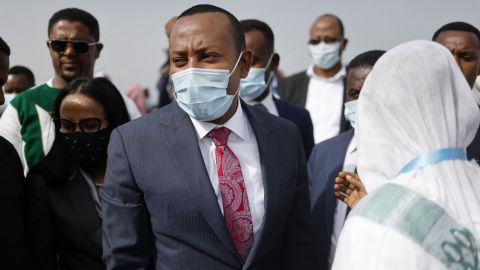
Less than a year before Abiy launched an assault on his own people, he described war as “the epitome of hell” during his acceptance speech for the Nobel Peace Prize. He was awarded the honor for his role in ending a long-running conflict with neighboring Eritrea and for pushing significant reforms in Ethiopia.
Eritrea was once a part of Ethiopia, but won independence in 1993 after a 30-year armed struggle. From 1998 to 2000, Ethiopia and Eritrea fought a war that killed thousands on both sides, which led to a long, dangerous stalemate and a total freeze in cooperation.
Once in power, Abiy moved quickly to normalize relations with Eritrea, in part by accepting the ruling of an international commission on boundaries between the two states.
Abiy also made significant moves towards domestic reforms, raising hopes that he would bring about lasting change. As well as forging a truce with Eritrea, he lifted a severe security law, released thousands of political prisoners, moved to open up the telecommunications industry and expand private investment.
But his reputation as a leader who could unite Ethiopia has swiftly deteriorated, and his much-lauded peace deal with Eritrea appears to have paved the way for the two countries to go to war with their mutual foe – the TPLF.
Since the conflict began, ethnically-driven violence has broken out into other parts of the country, including in Abiy’s home region, Oromia, the country’s most populous region. Last May, the Oromo Liberation Army (OLA), an armed group, vowed to wage “total war” against Abiy’s government.
Despite promises to heal ethnic divides and pave the way for a peaceful, democratic transition, Abiy has increasingly invoked the playbook of repressive regimes: Shutting down internet and telephone services, arresting journalists and suppressing critics. Abiy has also been criticized for fueling “inflamed” rhetoric amid the conflict in Tigray, whose forces he has described as “weeds” and “cancer.”
Last July, in the midst of the war, Abiy and his party won a landslide victory in a general election that was boycotted by opposition parties, marred by logistical issues and excluded many voters, including all those in Tigray – a crushing disappointment to many who had high hopes that the democratic transition Abiy promised would be realized.
Source: cnn.com Original Media SourceShare this news
This Year’s Most Read News Stories

British Investor’s $1.6 billion real estate project in Zanzibar lies in limbo
The revocation of British developer Pennyroyal’s leasehold for the construction of Blue Amber Resort by the Revolutionary Government of Zanzibar has sent shock waves in the nascent property market on the Isles.Continue Reading
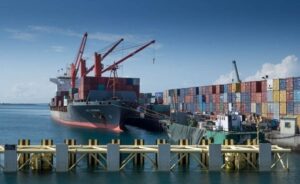
Zanzibar: Containers and dhows carrying alcohol stuck at Malindi Port
ZMMI, Scotch Store and One Stop Company have filed contempt of court case against Nicholas Eshalin, the chief executive officer of the Zanzibar Multipurpose TerminalContinue Reading
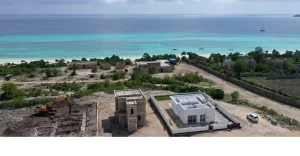
Tanzania readying to talk to British developer over Zanzibar land lease revocation
Dar es Salaam. British firm Pennyroyal Limited has said it will sue the Tanzanian government over leasehold revocation in Zanzibar, but the Attorney General has confirmed that they are preparing to meet with the investor.Continue Reading

